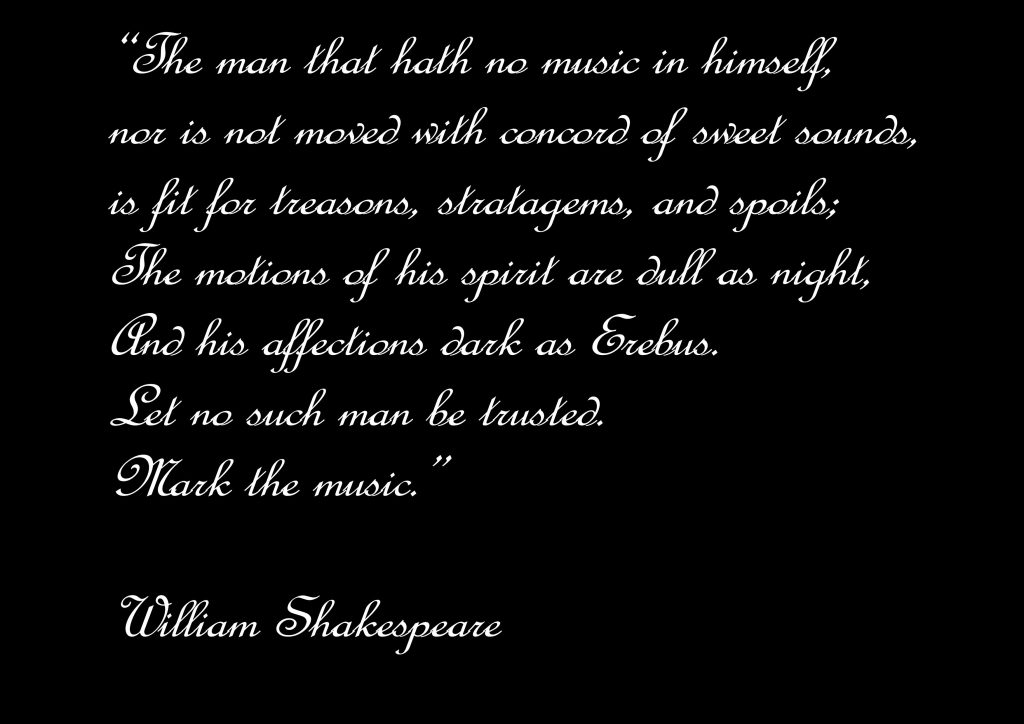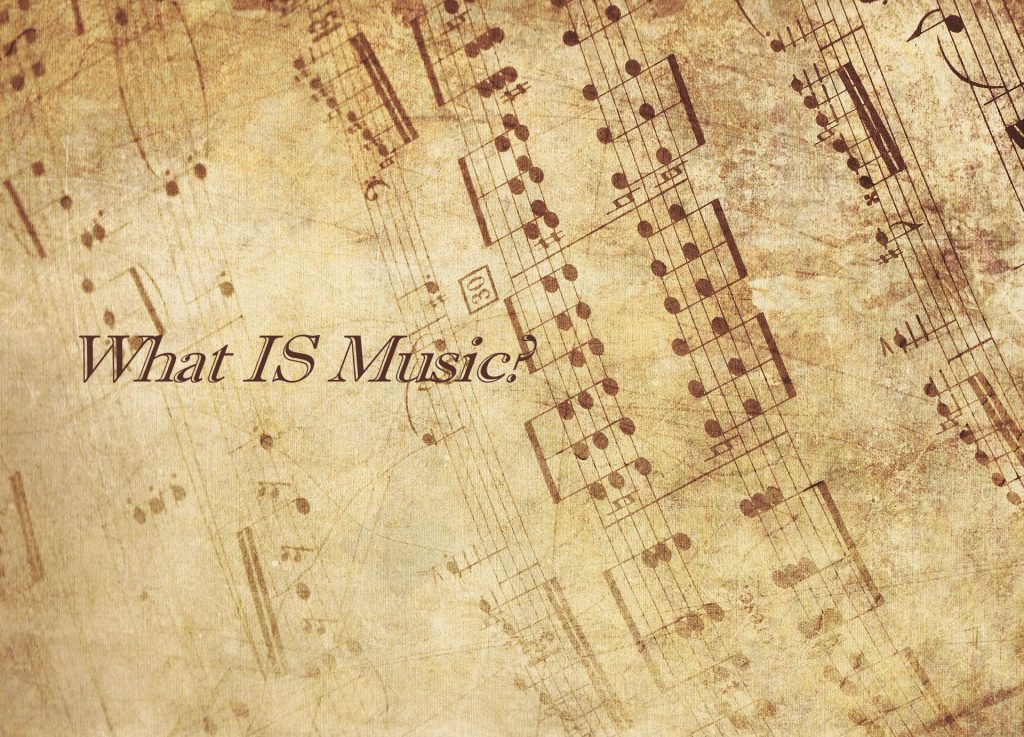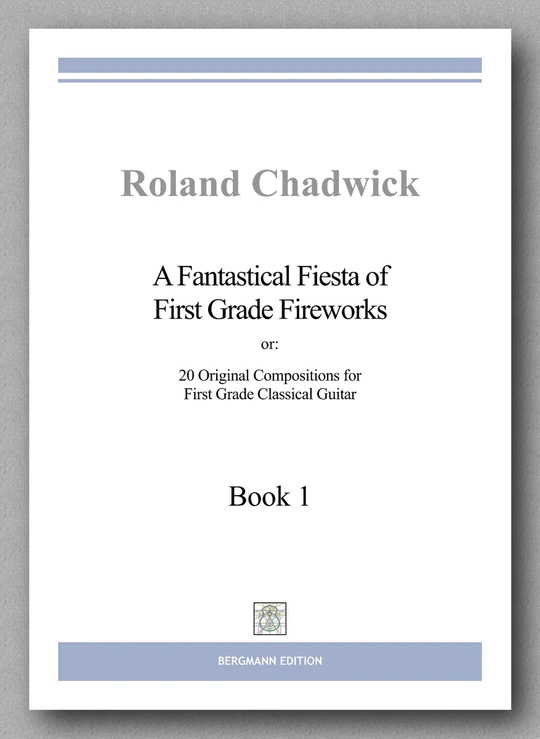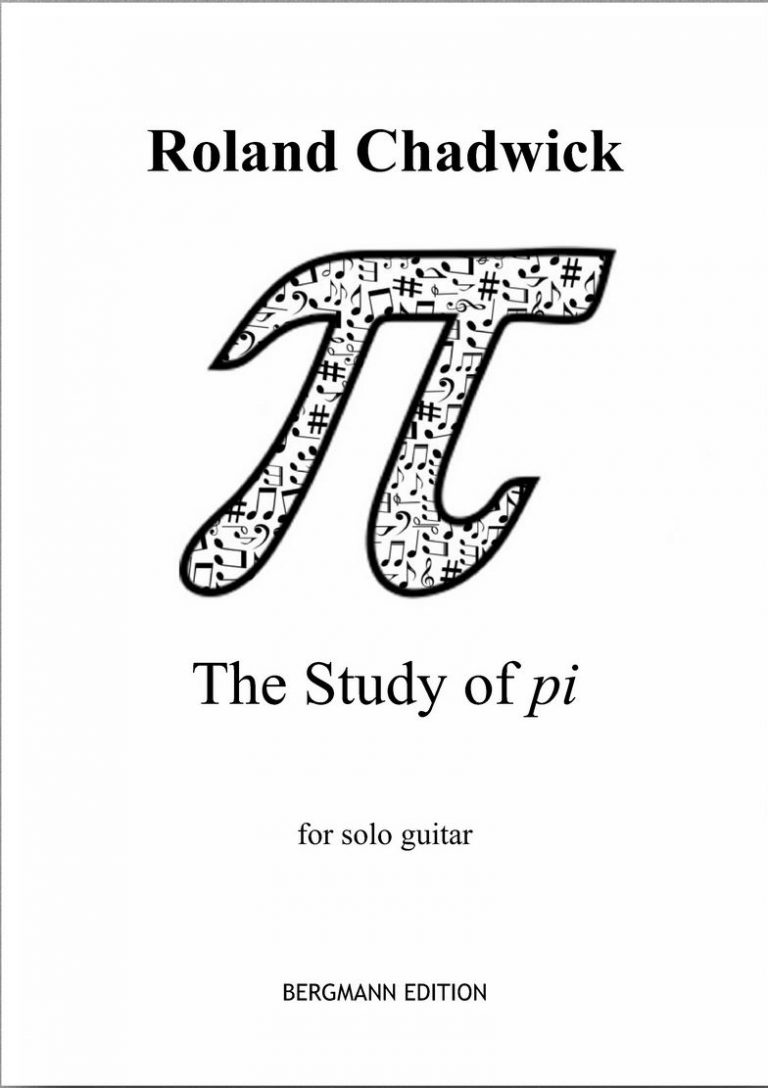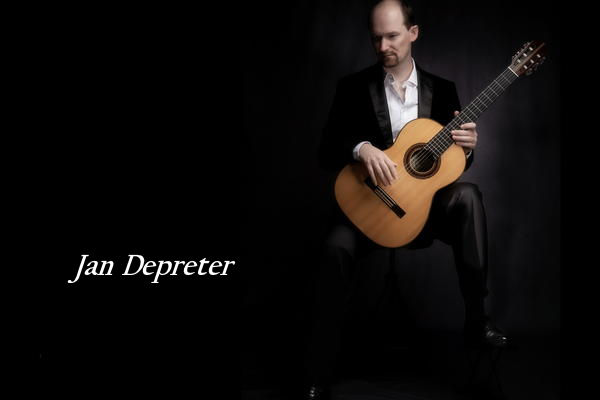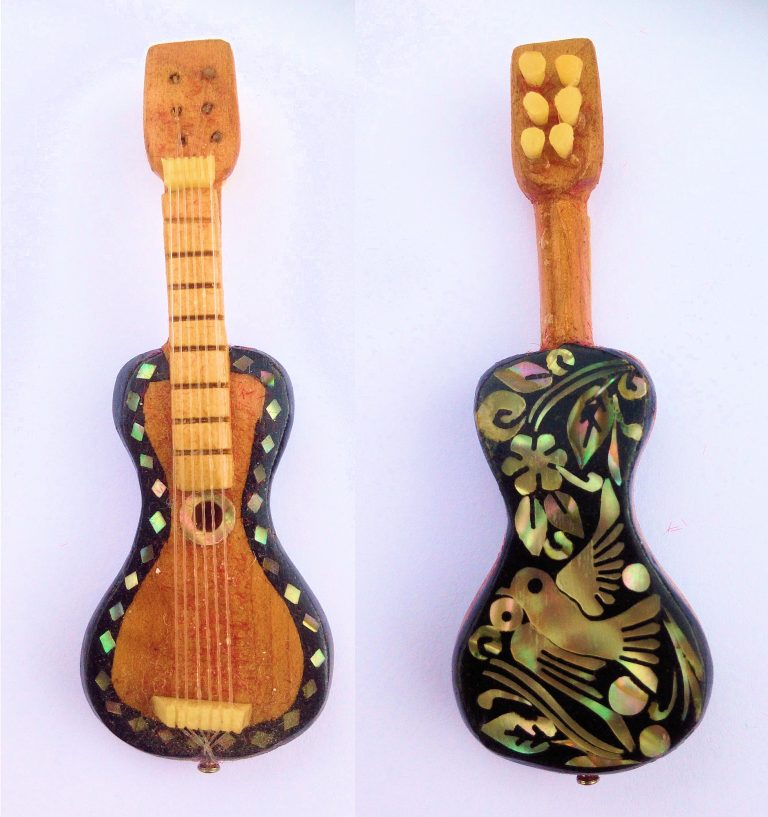Preface
What follows began as a demonstration for my students of what I think music is. Later it became a video kindly produced by Michael van Koetsveld. Some excerpts of that video are retained here for demonstration purposes without which, these ideas make no sense. I had improvised straight to camera to make that video and it became apparent to me that I hadn’t quite nailed it. So, I developed what I had done into a script and my friend, Andrew Keeping, a fellow musician and wonderful movie maker agreed to remake the movie. And then Covid came and Boris Johnson closed England. Andrew and I may make the movie one day but some of my friends encouraged me to include it on my Blog Page.
So here it is with words to read and videos to watch. Please feel free to argue any of the points I’ve made in person (with appropriate social distancing) by email or better still, on Facebook.
What IS this thing called Music?
I’ve been a composer and a guitarist for 50 years, and at the age of 63, after dedicating every waking hour of my life to the writing, recording and performance of music, I’ve got a question.
What IS music?
What IS it? What IS it I’ve been doing all this time? What IS it I’ve been so dedicated to, so passionate about, so obsessed with?
What IS music?
You’d have thought I’d some idea of what it was I was getting involved with.
The world goes strangely silent when I ask this question. We grasp for all sorts of explanations of what it might be, but the question morphs subtly into some version of “What is music for?” or “What does music mean to us?” or “Why does music matter?” or “Why does it form the very fabric of our culture? All human cultures.”
You could try saying: “It IS an experience.” Well yes it is, but that describes our experience of it and the experience is the end result of listening to it, to music, but this doesn’t satisfy the question “What IS music, in and of itself that generates that experience?”
So, we’re back to: What IS music?
Let’s look at a painting. We know what a painting is. A painting is a visual representation of something we’ve seen or remembered or imagined on a canvas. That’s a painting and we know what it is.
Sculpture. Sculpture is a visual representation of something we’ve seen or remembered or imagined and we know what it is. It’s a sculpture.
Architecture. We know what architecture is. Architecture is about building buildings like the one you’re probably sitting in and a hammer? I know what a hammer is. A hammer is a tool you bang nails in with and therefore build building like this which might be decorated with paintings and sculptures and fabrics and furniture. I know what these things are, and I know why we need them.
But what IS music? And again, the world goes strangely silent.
There doesn’t seem to be a ready ‘off the shelf answer’ to that particular question.
Poetry Please
Now all through my life as a composer people have asked me; “What are you saying with your music?” or “What are you trying to express through your music?” I ponder the question. I wait for an answer to come. But again, the world goes strangely silent and I draw a blank. I look at them and say stupidly; “I don’t know what I’m saying.”
If I knew what I was actually, concretely trying to say, I’d be a poet or an author or a journalist. I’d write it down or I’d paint it or sculpt it because I’d know exactly what it was I’m trying to say and exactly what it is I’m trying to achieve.
But that simply doesn’t happen with music.
I spend, sometimes years writing a piece of music, and when it’s done I’ll have my ideas of what it might be about, but my audience will always have a completely different interpretation and all I can say is, “really? I hadn’t seen that”. The music, framed by their life experience says something unique to them. And no one is right about this. There’s no correct interpretation. We’ve all had an experience of what the music says to us at that particular moment and every interpretation is valid.
As a wise man said: “Talking about music is like dancing about architecture.”
And still the music I write seems to express something which apparently important to me and it seems to say something to people who hear it.
So, what IS music that it has such expressive and emotional power?
Life in a Garret
All the musicians I know are really intelligent people. They’re really clever. Really smart. They’ve really got it all together and they could have made fortunes as Lawyers, Doctors, Bankers, any of those professions and yet, they were called on to become musicians. They had no choice. I had no choice but to be a musician, a composer.
And they answer that call:
- Not knowing what music actually is.
- Not realising, or just willing to take the hit, that music isn’t going to pay them a lot of money.
- Never knowing if their efforts amount to all that much anyway.
We all end up being jobbing musicians, we end up playing pubs, we end up teaching, but we wouldn’t do anything else. It’s the only thing we want to do. At least as a teacher I’ve got a guitar in my hand all day.
So, what IS music?
Well, Technically it’s …
Well, part of the answer to this questions is just staring us in the face every time we play music.
So, we’re doing two things here. Playing notes of different pitches, high or low and we’re dividing up time. We’re dividing time up the same way we’d divide an apple or saw up a plank of wood into long or short cuts or slice a loaf of bread into either thick or thin slices.
In music, we’re dividing actual time up into shorter or longer slices.
Human Time
So, where did our ability to divide time up into slices come from?
Experiments done by scientists in Kyoto showed that chimpanzees swayed, danced, and even clapped in time, to rhythmic stimulus.
Jump to 3.57 in this video.
Human babies, soon after they learn to walk start to dance to the music and we all quite rightly, gasp in amazement at how clever and musical our children are but these Japanese experiments showed, given the evolutionary link between chimpanzees and homo sapiens, that our nervous systems are geared up to respond to small and regular divisions of time, and that gearing seems to have translated itself into what we know as a musical beat.
And there’s a thing we must observe at this point. Human beings have a heightened and incredibly sophisticated consciousness of time and in this heightened consciousness of time, which for the purposes of this discussion I’ll call Human Time, we can see the future. That is to say we are conscious of a thing called the future and the music we make seems to reach for this future and journeys there until it arrives at the conclusion that musicians call home.
So, we can say music is sound, noise, notes, or silence – Shaped by Time.
The Temporal Structure Trick
Let me prove that to you. I’m going to play you a tune that you’ve known from a very early age. You’ve known this all your life and I want to see if see if you can recognise it.
Do you know what it is?
Any ideas?
No?
But you’ve known this since you were this high and you will sing it to your first child. This has always been part of your life, it is a part of the fabric of your culture, it’s this tune:
Now in my experience, if your one of the people who actually got it you’re the one in twenty. Most people don’t get that it’s Twinkle Twinkle Little Star.
What I’ve done is played the correct notes but stripped them of their usual temporal or time relationships and it’s these temporal relationships that provide the glue the notes need to become what we know as music.
So, I think we can say that music, at a technical level, is sound, noise, notes, or silence – Shaped by Time.
And that’s a good explanation – that tells you what music is – well it tells you how it’s technically put together but wait on, there’s something missing.
There’s Something Missing
That dry, technical explanation offers an insight into what some of the component parts of music are, but it doesn’t tell you why music can make you cry. Those lines and squiggles don’t tell you why music can make you happy, excited, exhilarated. They don’t tell you why you can feel love or passion or fear or sorrow or frenzy when you listen to piece of music. It doesn’t tell you why music speaks to all of our emotions. It doesn’t tell us why it affects our emotions at all.
So WHY does music do that to us? What is it doing? Where does that come from? I think the answer to that question lies a long time ago. To get to that answer we have to go back 200,000 years.
The Rift Valley
We Have the Raw Materials
So, music is in fact notes and sound shaped by time, but the question is; Where do those sounds, those raw materials, the musical ore which was which was dug out of our humanity and smelted in the fires of historical and human time originate?
Those sounds were with us and were an integral part of us from the very beginning of our existence on this planet. They were always a part of us, and they are a part us of still.
Now it’s very difficult to prove this because if you listen to history, it’s really quiet. The first recording of music is dated April 9, 1860, only 160 years ago and is of a woman singing the French folk song, “Claire de la lune” so that’s not much help.
But we’ve got some other clues. There is a flute that’s between 40 and 50 thousand years old been found in Germany and it’s a perfectly serviceable flute and flutes have got to come after, and in response to, singing.
And if you go to the Congo and listen to the Pigmies singing, they have a particularly beautiful singing voice and particularly beautiful songs and closer to my own patch, the Aboriginal culture. Now the Aboriginal culture’s music is incredibly dense and incredibly itself and has existed for at least 40 thousand years.
So, music has been with us for a very, very long time. In fact, David Attenborough said; “that every culture on the planet has music would indicate that music is part of our humanity”.
To be human is to be musical.
A Little History
So, what happened next? Music notation – our ability to write music down for all musicians to read and perform – emerges in a cuneiform tablet in Babylonia (today’s Iraq), in about 1400 BC. And it turns out the Greeks wrote music down, followed by the Byzantine’s and then as the 14th century came along in Europe, we started writing music down and then, something wonderful happened. We discovered we could write music for not just one musician but 2 or 4 or 20 or 200 distinct parts or instruments and that’s when things got way more complex. Before we started writing music down it had to be very simple because it had to be passed on by ear or by demonstration but not now. Now you can write for a hundred musicians playing something entirely different from each other and so you end up with Bach, Mozart, Beethoven, Brahms, Berlioz, Mahler, Debussy, Stravinsky, Gershwin, The Beatles, Ed Sheeran, Adele, Nickelback.
Oh well, that’s the way it went.
Deep Time
But it doesn’t start in 1400 BC in Babylon and it doesn’t start 200,000 years ago in the Rift Valley. All of this begs the question; Where did we, Homo Sapiens get these sounds, these raw materials from?
On Darwin’s Evolutionary Tree, our closest relatives, the Chimpanzees and Bonobos split with human beings and we all went our separate ways, between 4 and 7 million years ago.
Now go and listen to some recordings of Chimpanzees and Bonobos. They’re making exactly the same sorts of sounds.
This is a YouTube video of a Bonobo having its tummy tickled and yes, you guessed it, the Bonobo is giggling just like a human baby.
The Chimpanzee and Bonobo sounds are not as complex as the sounds we can make but they are similar, they’re the root of the sounds that we’re making.
Now, chimpanzees and Bonobos had been around a long time, up to 18 million years and their ancestors, and that also means our ancestors, known as Proto-Primates emerge between 55 and 65 million years ago. These sounds that are so expressive and so integral to our very existence and survival have been with us and our near and distant ancestors in the same way as arms, legs, eyesight, hearing and digestion and the whole complete piece of kit that you and I are, for near on 65 million years.
In fact, the incredibly complex piece of kit that you are is not complete or even functional without the ability to make these complex series of sounds.
And just because we lost our fur doesn’t indicate that we lost the means of generating those sounds. On the contrary. We became more sophisticated in the use of those sounds. The repertoire of cries, shouts and growls only seems to have grown.
And it doesn’t end there because those sounds, those cries, shouts, groans and growls that are the raw materials of our self-expression are still in use by us now, in their original form. They’re in fact, our first emotional response to almost anything that happens to us or those around us.
The Monkey Inside
So, What IS Music?
So, What IS music?
Music is the evolutionary result of the cry of a chimpanzee, the laugh of a Bonobo, the shout of an Orangutan given up to us, homo sapiens as our primal form of communication and self-expression, which through historical time, shaped by human time and modified by the miraculous intellect we have been gifted with, results in the music we call, sublime.
And it’s not too big a leap to suggest that it took between 55 and 65 million years of evolution of sound to eventually arrive at Bach and all of the other composers who wrote the music that shaped the world.
Music is the most fundamental, most primal, most complex form of communication and self-expression you and I have. It is at the core of our humanity. It is the marrow of our being. It is written into the DNA of our existence.
We are not human without this brain. We are not human without music.
To be without self-expression, to be without communication, is to be silent, is to be mute.
But the evidence suggests that human beings have so much to express through intellect, writing, dance, painting, sculpture, through music. In fact, you cannot shut us up.
But music is at the core of it. It is the fundamental and most profound set of sounds we have, and those sounds go back millions of years and they are still with us today, we express ourselves through those sounds and those sounds shaped by time constitute the core of our humanity.
Music Education
There is a debate raging among educators about the importance Music Education in schools. Commitment to, and funding for music education is slowly bleeding from our educational institutions and it’s not too much to say that if this trend continues, our schools will fall silent.
The National Plan for Music Education (NPME) was published by the government in 2011 and has been declared by all involved groups consulted by the Musician’s Union as mostly, a failure.
And Music is a core subject within the national curriculum! If a National Plan for Maths or English or Science Education was seen as a failure there would be a national outcry.
The only compulsory subjects in English schools, from the age of 14 onwards are: English, Maths, Science – fair enough, Religious Education and Physical Education.
Music Education stops at exactly the moment a child develops the cognitive ability to actually understand what they are hearing or indeed, what they are playing.
And you might argue that music isn’t adding anything to the economy of the UK, but you’d be wrong! The UK music industry grew by 2% in 2017 to contribute a record £4.5 billion to the economy and it’s increasing. And yet successive governments have thrown as many spanners in the path of the development and growth of music as they can find in their political toolkits. Remember the “2 in a bar rule”? This rule said that a publican could have 2 musicians playing in the bar and he didn’t have to have a license. Now he does and you guessed it, pub music, the place where most musicians cut their teeth, is dying.
Ancient Greeks, the founders of our western thought knew that music was an integral part of a human being’s development. You had to be athletic, you had to be literate, you had to be scientific, you had to be mathematical and, you had to have a musical education. In this way the Greeks created a complete human being. And it was those people that created the modern world.
If we allow music education to slowly die in our schools we will be allowing something to die in our children. We will rob them of the nub, the essential core, the source, the original wellspring of their self-expression.
Take away heat – you’ll be cold
Take away light – you’ll live in darkness
Take away PE = you’ll be a sloth
Take away history – you are without context
Take away language – you are mute
Take away maths – you don’t know how many apples you have
Take away science – you live in a cave
Take away music – Screen cuts to black for 30 seconds
